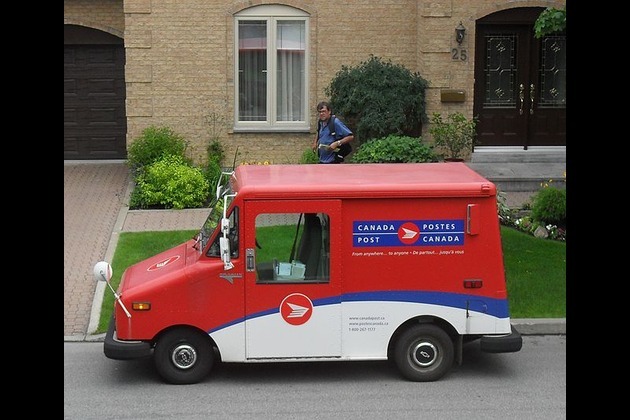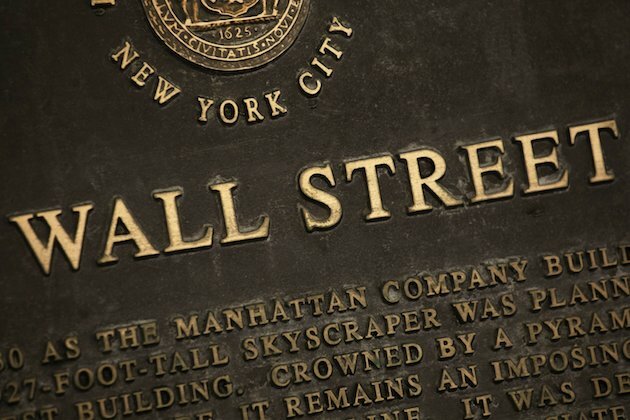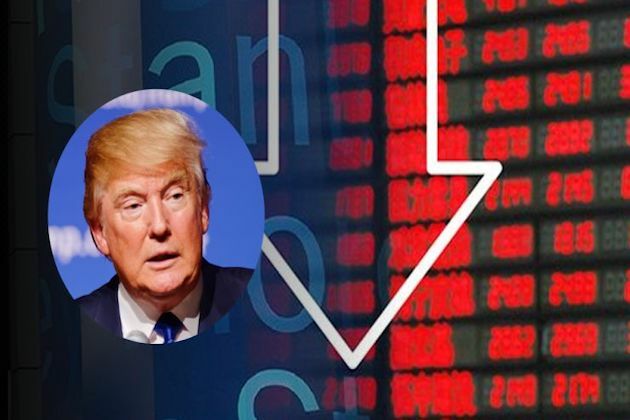Why Uber drivers aren't unionizing in Quebec
The Conversation
24 Jun 2022, 00:09 GMT+10

As of mid-June, the Uber platform will extend its services to the entire province of Quebec. On a global scale, Uber is in nearly 10,000 cities and 71 countries and has more than 3.5 million workers.
This model, based on on-demand work and the algorithmic distribution of tasks, fundamentally transforms ways of thinking about, organizing and carrying out work, both on an individual and collective basis.
The expansion of Uber's service across Quebec provides an opportunity to examine the reality of the work being carried out by thousands of drivers and delivery personnel in the province. What is their work day like? How do they make social connections?
To try to answer these questions, I observed Facebook groups of drivers and interviewed about 50 Uber workers in Quebec.
As a doctoral student in communications at Universite du Quebec à Montreal and a research student at the Universite du Quebec's Institut national de la recherche scientifique, my research examines the profile and motivations of Uber drivers, their ideas about collective action and, more generally, the psychosocial issues involved in work that is mediated by algorithms.
Many encounters, but solitary work
Although Uber workers encounter many people on a daily basis (customers, restaurant owners, passengers), their activity is essentially solitary. Their work takes place without ever meeting another human from Uber. Their registration on the platform is done online and their daily tasks are distributed to them by an algorithm through the Uber app.
If a problem prompts a driver to contact the company's technical service, the people they interact with are located in out-of-country call centres. What's more, the answers they get are most often formatted by scripts, reinforcing the robotic nature of their relationship to work.
As for the few moments when workers might meet - in restaurants waiting for orders or in drop-off areas at airports - drivers' interactions are limited to brief exchanges about the number of orders they got that day, as expressed by Katia, an Uber Eats delivery driver in Montreal:
A competitive atmosphere
Uber drivers' Facebook groups do provide a place to share information and vent about frustrating situations. However, these spaces play a very limited role in building a collective since they don't make it possible for drivers to have extended conversations about work.
The architecture of the groups favours short-term interactions, with posts quickly fading into the thread. Constructive exchanges would require conversations over a long period of time in an atmosphere of listening and trust. However, the competition felt by drivers, combined with the brief and anonymous interaction mode of social networks, contributes to a hostile climate. As Diane, an Uber Eats delivery driver in Laval, says:
Collective action is a threat
Surprisingly, this absence of a collective identity is not perceived as a problem by most of the workers I interviewed. Despite difficult working conditions over which they have no control, workers do not tend toward gathering and mobilizing in an effort to establish a power relationship with Uber.
While Uber drivers in other jurisdictions have tried to unionize, the idea of collective action is perceived as a threat by most of the Quebec workers. The competitive climate pushes drivers to develop a repertoire of tactics and tinkering to stand out, as Bertrand, an Uber driver in Quebec City, said:
Among the tactics used to optimize their income, some drivers will, for example, call customers to find out their destination before picking them up. If drivers feel the trip is unprofitable, given the distance to the customer, they will cancel the trip. Others use two phones to maintain access to the map and show the location of the surcharge zones.
No sense of belonging
To many workers, a work collective that strives to harmonize practices and replace individual tactics with collective strategies, looks like a loss of competitive advantage.
Now that Uber drivers' struggles against cab drivers is over - thanks to the adoption of Bill 17 in 2020 which deregulated Quebec's taxi industry - they no longer share a common enemy.
Fraught consequences
Each driver has to learn how the business works and cope with its challenges on their own, cobbling together their own tactics, conscious that not all drivers benefit from the same resources. Moreover, drivers are deprived of the opportunity to develop a collective reaction about their working conditions.
The absence of meaningful exchanges, opportunities to listen and the presence of other drivers hinders the development of any meaningful relationships and solidarity between drivers. Their activity is reduced to their relationship with technology.
In fact, without the power to act collectively in the face of rigid working conditions, the dysfunctions and health problems of workers are always treated as isolated realities rather than as a consequence of the way their work is organized. As Kader, an Uber driver in Montreal, puts it:
The profiles of Uber drivers in Quebec vary greatly. For example, the fact that it's impossible to negotiate higher incomes does not have the same consequences for a Tesla engineer, who drives three hours a week to take their mind off things, as it does for an immigrant who works 60 hours a week to support their family.
Low revenues and lack of transparency
For some individuals being an Uber driver brings in extra income, but the model also takes advantage of the precariousness of a part of the population. Those who carry out the activity as their only source of income, often do so because they lack a better option.
Although the majority of the drivers I interviewed do not aspire to become employees and are reluctant to join a union, many deplore the low income and the platform's lack of transparency over how the algorithm and the remuneration system work.
Faced with this situation, they see the government as the only stakeholder that could establish a power relationship with Uber and force the platform to offer better working conditions to its drivers.
Author: Lucie Enel - Doctorante en communication, UniversitУТЉ du QuУТЉbec УТ MontrУТЉal (UQAM) 
 Share
Share
 Tweet
Tweet
 Share
Share
 Flip
Flip
 Email
Email
Watch latest videos
Subscribe and Follow
Get a daily dose of Toronto Telegraph news through our daily email, its complimentary and keeps you fully up to date with world and business news as well.
News RELEASES
Publish news of your business, community or sports group, personnel appointments, major event and more by submitting a news release to Toronto Telegraph.
More InformationBusiness
SectionFedEx, UPS step up as Canada Post loses market share in strikes
OTTAWA, Canada: With Canada Post struggling to maintain operations amid labour unrest, rivals like FedEx and UPS are stepping in to...
U.S. stocks steady Tuesday despite tariffs turmoil
NEW YORK, New York - U.S. and global markets showed a mixed performance in Tuesday's trading session, with some indices edging higher...
Beijing blamed for covert disinformation on French fighter jet Rafale
PARIS, France: French military and intelligence officials have accused China of orchestrating a covert campaign to damage the reputation...
Birkenstock steps up legal battle over fakes in India
NEW DELHI, India: Birkenstock is stepping up its efforts to protect its iconic sandals in India, as local legal representatives conducted...
Beijing hits back at EU with medical device import curbs
HONG KONG: China has fired back at the European Union in an escalating trade dispute by imposing new restrictions on medical device...
Wall Street reels after Trump invokes new tariffs
NEW YORK, New York - Monday's trading session saw mixed performances across U.S. and global markets, with several major indices posting...
Canada
SectionFedEx, UPS step up as Canada Post loses market share in strikes
OTTAWA, Canada: With Canada Post struggling to maintain operations amid labour unrest, rivals like FedEx and UPS are stepping in to...
India's share in global equity market recovered in June to 4% from 16-month low of 3.6% in Feb: Motilal Oswal
New Delhi [India], July 9 (ANI): India's share in the global equity market capitalisation rose to 4 per cent in June 2025, recovering...
Blue Jays strike early, top White Sox to win 10th straight
(Photo credit: Kamil Krzaczynski-Imagn Images) Vladimir Guerrero Jr. had two hits and two RBIs, Davis Schneider homered and Chris...
India's share in global market recovered in June to 4% from 16-month low of 3.6% in Feb: Motilal Oswal
New Delhi [India], July 9 (ANI): India's share in the global market capitalisation rose to 4 per cent in June 2025, recovering from...
Yankees' bats erupt after rain delay in 10-3 rout of Mariners
(Photo credit: Brad Penner-Imagn Images) Giancarlo Stanton hit a three-run homer in the sixth inning, Aaron Judge added his 34th...
17-year-old hockey phenom Gavin McKenna commits to Penn State
(Photo credit: Connor Hamilton-Imagn Images) Gavin McKenna just accelerated the growth and relevance of NCAA men's ice hockey. ...












